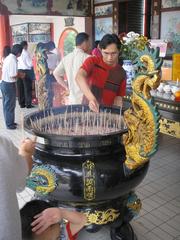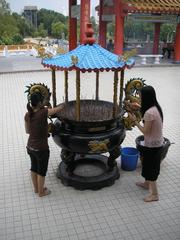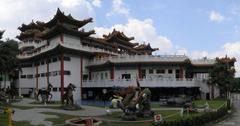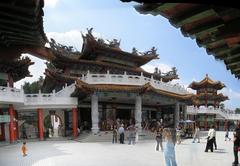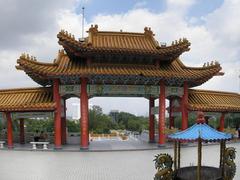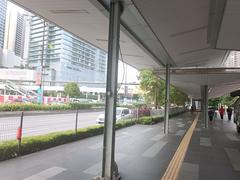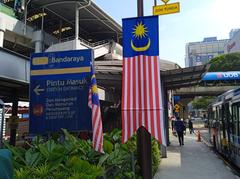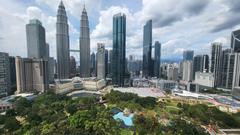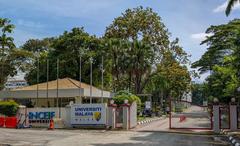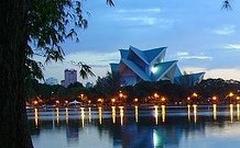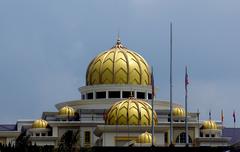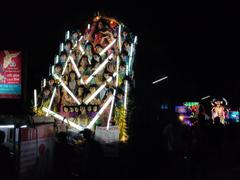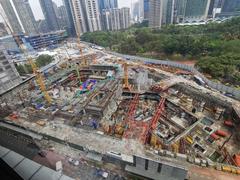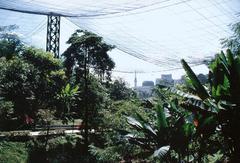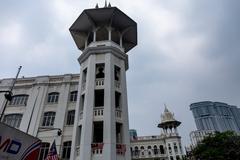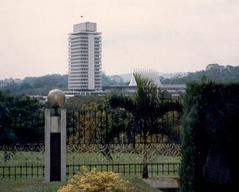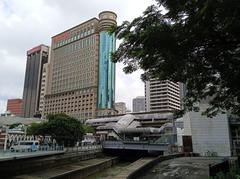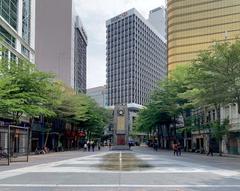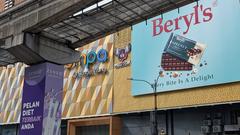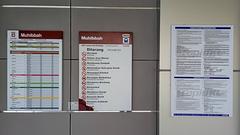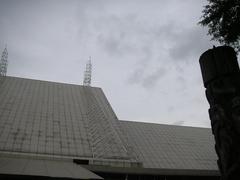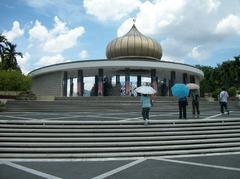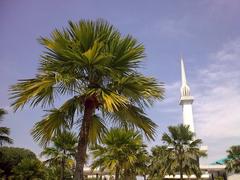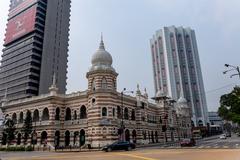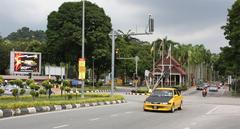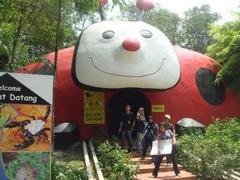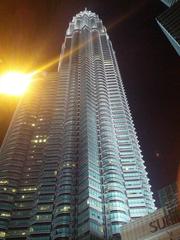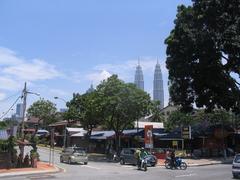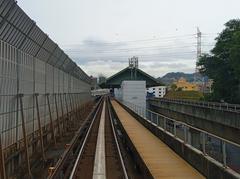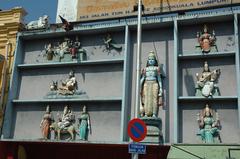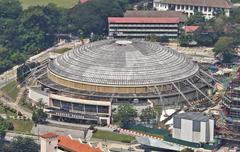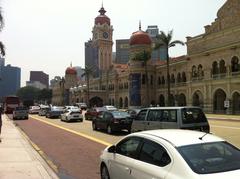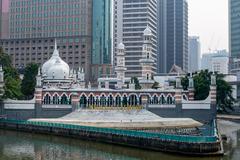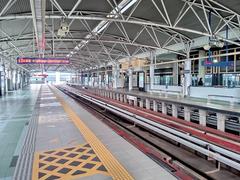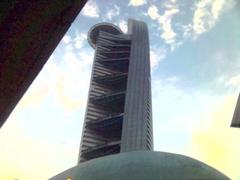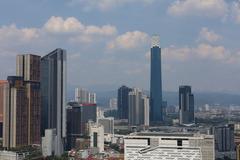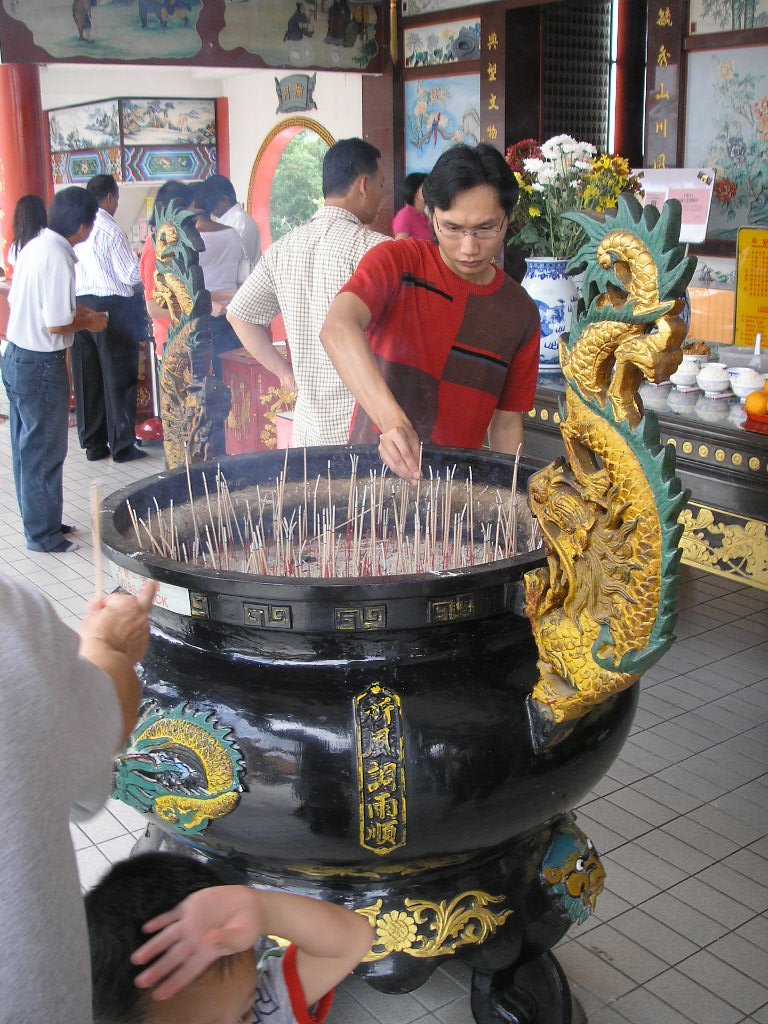
Guide to Visiting Thean Hou Temple, Kuala Lumpur, Malaysia
Date: 17/07/2024
Introduction
Discover the architectural marvel and cultural gem that is Thean Hou Temple in Kuala Lumpur. This iconic six-tiered temple, dedicated to Mazu, the Chinese sea goddess, stands as a testament to the rich cultural tapestry of Malaysia. Built by the Selangor and Federal Territory Hainan Association, the temple’s construction spanned from 1981 to 1987, making it a relatively modern yet culturally significant landmark (source). Thean Hou Temple is not just a place of worship; it is a vibrant hub for cultural and religious activities, drawing thousands of visitors annually. This comprehensive guide delves into the temple’s historical, cultural, and architectural significance, while also providing practical information for visitors, including ticket prices, visiting hours, and travel tips. Whether you’re a history enthusiast, a cultural explorer, or a spiritual seeker, Thean Hou Temple offers a unique and enriching experience that captures the essence of Chinese heritage in Malaysia.
Table of Contents
- Introduction
- History of Thean Hou Temple, Kuala Lumpur
- Visitor Information
- Unique Aspects
- Educational and Community Engagement
- Future Prospects
- FAQ
- Conclusion
- References
History of Thean Hou Temple, Kuala Lumpur
Origins and Construction
Thean Hou Temple, also known as the Temple of the Heavenly Queen, is a six-tiered temple located in Kuala Lumpur, Malaysia. It is dedicated to Mazu, the Chinese sea goddess, who is revered by the Hainanese community. The temple’s construction began in 1981 and was completed in 1987, making it a relatively modern addition to Kuala Lumpur’s rich tapestry of cultural landmarks. The temple was built by the Selangor and Federal Territory Hainan Association, reflecting the significant Hainanese presence in Malaysia.
Architectural Design
Thean Hou Temple is an architectural marvel that blends traditional Chinese design with modern architectural techniques. The temple’s design incorporates elements from Buddhism, Taoism, and Confucianism, reflecting the syncretic nature of Chinese religious practices. The structure features a grand entrance with a multi-arched gateway, red pillars, and intricate carvings that depict various deities and mythological figures. The roof is adorned with ornate dragons and phoenixes, symbolizing power and prosperity.
Cultural Significance
Thean Hou Temple holds immense cultural significance for the Chinese community in Malaysia. It serves as a center for cultural and religious activities, including festivals, weddings, and other ceremonies. The temple is particularly busy during Chinese New Year and the Mid-Autumn Festival, when it becomes a focal point for celebrations. The temple also plays a crucial role in preserving Chinese heritage and traditions in Malaysia, offering a space for the community to come together and celebrate their shared cultural identity.
Historical Events and Milestones
Since its completion, Thean Hou Temple has been a site of numerous significant events and milestones. In 1989, the temple hosted its first major event, the celebration of Mazu’s birthday, which attracted thousands of devotees. Over the years, the temple has also been a venue for various cultural exhibitions, religious ceremonies, and community events. In 2007, the temple celebrated its 20th anniversary with a series of grand festivities, highlighting its importance as a cultural and religious landmark in Kuala Lumpur.
Preservation and Renovation
Despite being a relatively modern structure, Thean Hou Temple has undergone several renovations to preserve its architectural integrity and enhance its facilities. In 2011, the temple underwent a significant renovation to restore its intricate carvings and frescoes, ensuring that they remain vibrant and detailed. The temple’s management has also invested in modern amenities to accommodate the growing number of visitors, including improved parking facilities and accessibility features.
Visitor Information
Ticket Prices and Visiting Hours
Thean Hou Temple is open daily from 8:00 AM to 10:00 PM. Admission is free, but donations are welcome to help with the temple’s maintenance and activities.
Travel Tips
The temple is easily accessible by public transport, including buses and the Light Rail Transit (LRT). It is advisable to visit early in the morning or late in the evening to avoid the crowds and enjoy a more serene experience.
Nearby Attractions
Thean Hou Temple is located near several other attractions in Kuala Lumpur, including the National Museum, Perdana Botanical Garden, and the Kuala Lumpur Bird Park. Visitors can plan a full day of sightseeing around the temple area.
Accessibility
Thean Hou Temple is equipped with ramps and elevators to accommodate visitors with mobility issues. There are also ample parking facilities for those who drive.
Unique Aspects
Special Events
The temple hosts several special events throughout the year, including the grand celebrations for Chinese New Year and the Mid-Autumn Festival. These events feature traditional performances, lion dances, and various cultural activities.
Guided Tours
Guided tours are available for visitors who wish to learn more about the temple’s history, architecture, and cultural significance. These tours can be booked in advance through the temple’s official website.
Photographic Spots
Thean Hou Temple offers numerous picturesque spots, including the intricately designed archways, beautifully landscaped gardens, and the panoramic view of Kuala Lumpur from the temple’s upper tiers. Photographers will find plenty of opportunities to capture stunning images.
Educational and Community Engagement
Educational Programs
Thean Hou Temple serves as an educational hub, offering various programs and workshops on Chinese culture, language, and religious practices. These programs are aimed at both the Chinese community and the broader public, promoting a deeper understanding of Chinese heritage. The temple’s library houses a collection of books and manuscripts on Chinese history, religion, and philosophy, making it a valuable resource for researchers and students.
Community Engagement
Thean Hou Temple is deeply engaged with the local community, offering various social services and charitable activities. The temple runs a free clinic that provides traditional Chinese medicine treatments to the public. It also organizes food distribution programs and other charitable activities, reflecting its commitment to social welfare and community service.
Future Prospects
Looking ahead, Thean Hou Temple aims to continue its role as a cultural and religious hub in Kuala Lumpur. The temple’s management is planning further renovations and expansions to accommodate the growing number of visitors and enhance the visitor experience. There are also plans to introduce more educational and cultural programs, ensuring that the temple remains a vibrant and dynamic part of Kuala Lumpur’s cultural landscape.
FAQ
What are the visiting hours of Thean Hou Temple? Thean Hou Temple is open daily from 8:00 AM to 10:00 PM.
How much are the tickets for Thean Hou Temple? Admission to Thean Hou Temple is free, but donations are welcome.
Are there guided tours available? Yes, guided tours are available and can be booked in advance through the temple’s official website.
What should I wear when visiting Thean Hou Temple? Visitors are advised to dress modestly, with shoulders and knees covered, out of respect for the religious nature of the temple.
How can I get to Thean Hou Temple using public transport? The nearest LRT station is Bangsar, from where you can take a short taxi ride to the temple.
Conclusion
Thean Hou Temple in Kuala Lumpur is a multifaceted landmark that embodies the rich cultural, religious, and architectural heritage of Malaysia’s Chinese community. From its stunning design and intricate carvings to its role as a center for community engagement and cultural preservation, the temple offers an immersive experience for all visitors. The temple’s commitment to educational programs, charitable activities, and environmental sustainability further enhances its significance as a cultural beacon. Whether you’re participating in grand celebrations during Chinese New Year or simply exploring the serene gardens, Thean Hou Temple provides a memorable and enriching visit. As you plan your trip, remember to check the temple’s official website for the latest information on events and activities. Embrace the opportunity to delve into the vibrant traditions and history that Thean Hou Temple has to offer, making your visit to this cultural gem a truly unforgettable experience.
References
- Thean Hou Temple, n.d., Official Website. source
